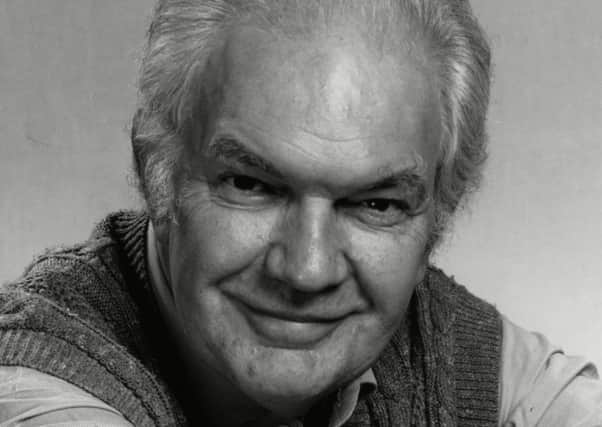Obituary: Simon Relph, influential British film industry executive and producer


Simon Relph was born into the film industry. His father was the Ealing producer Michael Relph and his grandfather George Relph played Tiberius in Ben-Hur (1959). He began his own film career in the modest role of third assistant director on Carry on Cruising in 1962 and went on to become one of the most important figures in the British film industry in the 1980s and 1990s as a producer and executive.
A big man, with a big voice and equally big smile, Relph became a very familiar figure around Wardour Street. He nurtured a generation of British film-makers, not only as a producer, but also as head of the new British Screen Finance Corporation in the second half of the 1980s.
Advertisement
Hide AdAdvertisement
Hide AdWith government support, the corporation provided cash backing for dozens of films and helped revive the industry in the UK, along with Channel 4 and the development of multiplex cinemas, after years of decline. Relph was already established as a successful producer when he took charge at British Screen Finance.
After being tapped by Warren Beatty to be executive producer on his sprawling Russian epic Reds (1981), he branched out as an independent producer and guided several major British films into production, including The Ploughman’s Lunch (1983) and Comrades (1986), Scottish film-maker Bill Douglas’s story of the Tolpuddle Martyrs.
“He was a colossal influence on many of us breaking through in the British film industry in the 1980s and 90s,” said Stephen Woolley, producer of The Crying Game (1992) and Carol (2015). Commenting on The Guardian’s Film Blog site, he said: “He was the godfather to a whole generation of aspiring film-makers.”
Simon George Michael Relph was born in London in 1940. During his early years both his parents were working in the theatre, his father as a set designer and his mother Doris as a costume designer. He was packed off to boarding school at the age of four.
In his early teens he appeared in a school play with girls from a neighbouring school, one of whom Amanda Grinling he would eventually marry in 1963, after a chance meeting brought them back together.
He studied engineering at Cambridge, but continued acting in university productions and on graduation went into the film industry, working his way up from runner and third assistant director.
He was first assistant director on Roman Polanski’s famously bloody version of Macbeth (1971), made shortly after the murder of Polanski’s wife Sharon Tate and their unborn child by the deranged followers of Charles Manson. He also had a spell at the National Theatre in London in an organisational role ahead of the opening of the new complex on the South Bank.
Returning to film, he was production supervisor on John Schlesinger’s big-budget wartime epic Yanks (1979) before being recruited by Beatty for Reds. Beatty won the Oscar for best director but the film lost out to Chariots of Fire for best picture.
Advertisement
Hide AdAdvertisement
Hide AdRelph had set up Skreba Films with Ann Skinner and Zelda Barron, and it made a string of significant British films including The Return of the Soldier, Comrades and the comedy Heavenly Pursuits (1986), set in Glasgow and starring Tom Conti, Helen Mirren and a teenage Ewen Bremner.
Relph was particularly proud of The Ploughman’s Lunch (1983). Starring Jonathan Pryce in the world of the media, it examined changing values in Thatcher’s Britain.
After that first successful period as an independent producer, he effectively did a poacher-turned-gamekeeper act when he took the job of chief executive at British Screen Finance in 1985. Instead of doing the rounds begging for money, he was now the one handing it out.
Stephen Woolley recalled the difficulties he had in getting backing for Scandal, his 1989 drama about the Profumo affair – the Secretary of State for War was sharing a mistress with a Soviet naval attaché. Woolley said the BBC and Channel 4 were nervous of upsetting Thatcher, but Relph came to the rescue. “With every penny he invested came a million pounds-worth of knowledge and wisdom, charmingly and eruditely bestowed,” said Woolley.
Relph resumed his career as a film producer in the early 1990s and his later films include Blue Juice (1995), a surfing movie with Ewan McGregor and Catherine Zeta-Jones, The Slab Boys (1997), an adaptation of the play by the Scots writer John Byrne, and Hideous Kinky (1998), directed by Gillies MacKinnon and starring a young Kate Winslet.
He also served as chairman of the British Academy of Film and Television Arts from 2000 to 2002. He became a CBE in 2004. He is survived by his wife and two children.
BRIAN PENDREIGH